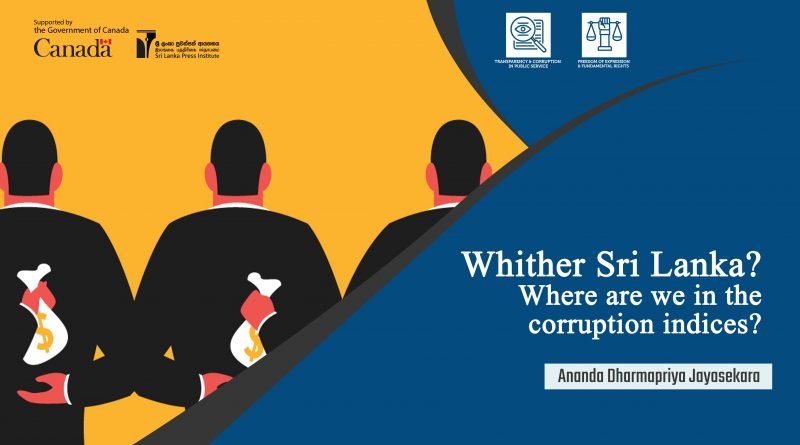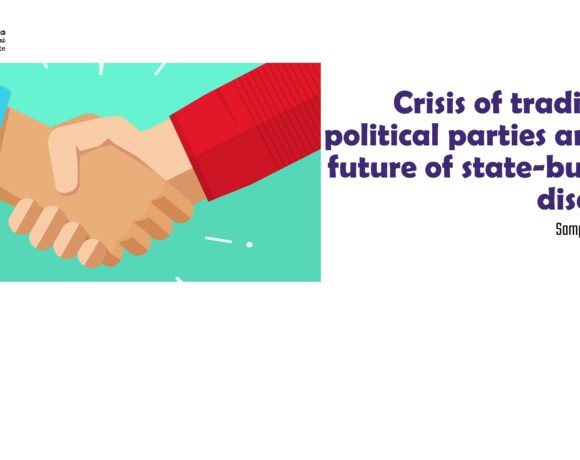The legal definition of corruption in Sri Lanka as per article 70 of Bribery Act of 1954 No. 11 amended by Act No. 20 of 1994 is as follows:
Any public servant who, with intent, to cause wrongful or unlawful loss to the Government, or to confer a wrongful or unlawful benefit, favour or advantage on himself or any person, or with knowledge, that any wrongful or unlawful loss will be caused to any person or to the Government, or that any wrongful or unlawful benefit, favour or advantage will be conferred on any person-
(a) does, or forbears to do, any act, which he is empowered to do by virtue of his office as a public servant;
(b) induces any other public servant to perform, or refrain from performing, any act, which such other public servant is empowered to do by virtue of his office as a public servant;
(c) uses any information coming to his knowledge by virtue of his office as a public servant;
(d) participates in the making of any decision by virtue of his office as a public servant;
(e) induces any other person, by the use, whether directly or indirectly, of his office as such public servant to perform, or refrain from performing, any act
However, the majority of the population is unaware of the legal background of corruption. One criterion that can be used to measure the level of Sri Lanka in terms of corruption is the Corruption Perception Index (CPI) of Transparency International. CPI lines up countries according to the level of corruption. The countries with the lowest prevalence of corruption top the list while the countries with the highest prevalence of corruption are at the bottom. Sri Lanka remains below 50% since the past two decades. The nation is categorized in the range of countries with a high prevalence of corruption (see the graph below).
Sri Lanka’s level of corruption as per CPI (2010 – 2020)

In 2019, Sri Lanka achieved 38 marks out of 100, and the country was placed at 93rd position among 180 countries. According to the graph, the level of points of Sri Lanka remained unchanged in the years 2017, 18 and 19. New Zealand and Denmark top the CPI with 87 marks. Finland has scored 86 and becomes second in the index. Somalia, which scored only 09 marks, is the most corrupt country in the world.
Internationally recognized results of corruption
How can corruption affect the citizens of a country? It is important to discuss the impact of corruption briefly.

For an example, imagine the situation when the contractor of a village road-building project has to pay Rs. 200,000 to the politician who helps to pass the one million rupee project. The contractor who has Rs. 800,000 at hand. He has to deliver the contract below standard if he wants to profit. Therefore, he has to spend Rs. 100,000 more to obtain the support of the officials for that. Now the contractor has Rs. 700,000 only to complete the project. If the contractor gains a profit of Rs. 200,000, the actual amount spent on the contract is Rs. 500,000 only. It is not necessary to further explain that the outcome is substandard.
Thus, corruption affects the quality of the public infrastructure. The reason is, much of the allocations for the development projects are not actually used for the purpose.
High level of corruption is a threat to the economic stability of a country. It erodes development. Corruption discourages foreign and local investment. Costs are increased, and destabilize social and economic infrastructure. Corruption increases poverty and inequalities. A bribery case related to Shell Company in Nigeria exposed that the bribes the company had offered to the corrupt officials in Nigeria were higher than the national budget of the country.
Corruption violates human rights of a nation. Suitable persons miss opportunities due to corruption. Corruption leads to injustices. Those are the reasons for a highly corrupt country not to attract investments.
Ending corruption is the responsibility of the citizens. They cannot vest in the responsibility to the government and look into it only when they have no other more important work. The citizens must always be on alert regarding corruption. One time Mexico Governor Ignacio Pagesa said, “Corruption is a phenomenon similar to the garbage, and it must be removed daily. Otherwise, garbage will bury us under them.”
Let us discuss transparency in another article.









